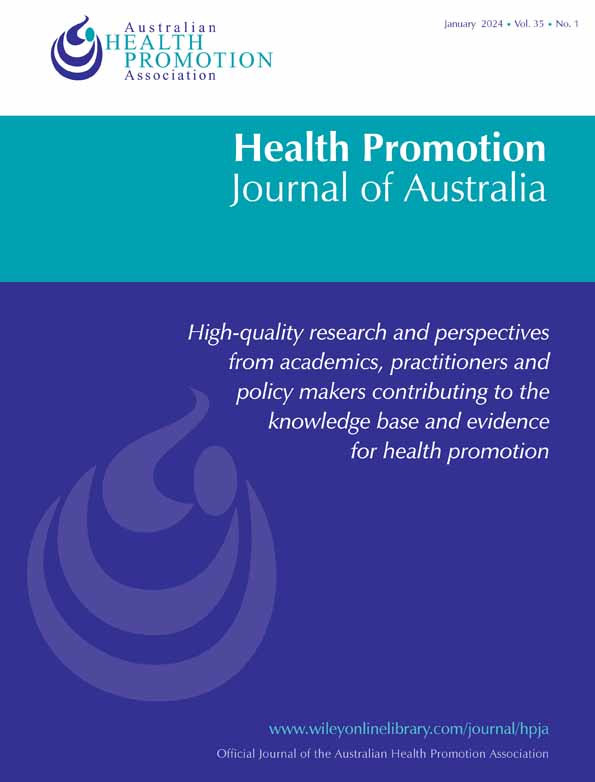Research on marginalised fathers - making a start
It is more than 30 years since Vicki Phares asked, “Where's Poppa?” in a review of research on child and adolescent psychopathology.1 In that review, the ratio of studies exclusively enrolling mothers compared to those solely focused on fathers was 48:1. More recently, Morgan et al. documented the stark lack of attention to fathers in research addressing the paediatric obesity epidemic. In 133 randomised controlled trials assessing behavioural interventions for paediatric obesity, 92% did not report on father involvement, a ratio of 12:1 and only four studies (2%) suggested that a lack of fathers was a possible limitation.2 In perinatal parental morbidity, maternal death by suicide is documented3, 4 and preventive factors are analysed to inform suicide prevention strategies.5, 6 For fathers, no national data on suicide is available. Yet suicide is the leading cause of death for men aged between 25 and 44 years in Australia,7 a period when men are becoming fathers. The first systematic review of death by suicide among fathers in the early parenting period is now being undertaken by researchers at Deakin University and the Murdoch Children's Research Institute (pers comm Giallo8).
In these three examples of health concerns, it becomes clear that fathers as a group are made invisible or marginalised across many areas of the health research field. It is timely, then, for the Health Promotion Journal of Australia to make a call for research papers on marginalised fathers, drawing attention to this gap in our understanding of family wellbeing.
The first studies that have been accepted identify distinct forms and responses to marginalisation. The study by Mancini et al.9 focuses on an online fathers' support group formed as a response to the lack of parent-related support services for fathers. The online fathers' support group formed by a father living in a remote area of Western Australia offered fathers from across Australia a way to hear from others facing similar parenting challenges without accessing a formalised parenting service.9 The group was regarded as a ‘safe place’ to offer as well as to receive support and to feel connected to other fathers, and participants reported benefits to their health and parenting competence as a result of the group interactions.
The study by Fletcher et al.10 documents a text messaging co-creation project as a response to the lack of information for fathers on how to support their partners experiencing PND. Expecting and new fathers are not included in the mental health service models identifying and supporting mothers who are experiencing depression or anxiety. The latest perinatal mental health clinical guidelines11 make no mention of fathers' role in support of the mother, assuming that maternal mental health will be addressed by clinicians. Accepting the reality that depressed or anxious mothers will seek support from their partners, messages were developed for these fathers to be offered through the national SMS4dads service (www.sms4dads.com). The researchers utilised a co-design process with mothers and fathers with lived experience; the mothers experienced perinatal depression or anxiety, the fathers as carers of such mothers, as well as experienced clinicians. The study describes the process of creating and testing messages based on experienced mothers' views of ‘what would have been useful for him to know’.
Findings from these studies suggest that perhaps there are ‘workarounds’ to the barriers that leave fathers on the margins. Interacting with peers through the creation of online groups may be an acceptable avenue for fathers to access parenting and mental health support. Supplying fathers whose partners are distressed with information and resources and recognising the fathers' role in supporting the mother may enrol him unofficially as part of the maternal mental health team.
The studies also have digital technology in common. Digital technologies allow participants to avoid the time costs and stigma of face-to-face services, and engaging fathers specifically enhances the importance of the father's role in family wellbeing. Both points may be equally applicable to researchers wishing to engage fathers. Guidance on the most effective digital recruitment methods can be found in the literature and clear evidence that researchers approaching male parents as ‘fathers’ rather than as ‘parents’ will result in higher recruitment rates.12, 13 However, the gaps in the fatherhood research field remain extensive and using an ‘app’ is no guarantee of effectiveness.14 It is to be hoped that these studies become the harbingers of numerous more extensive research reports carried out in health journals.
ACKNOWLEDGEMENTS
The author wishes to thank Wiley and the Health Promotion Journal of Australia for putting out the call for articles addressing marginalised fathers.
CONFLICT OF INTEREST STATEMENT
The author declares no conflicts of interest.




